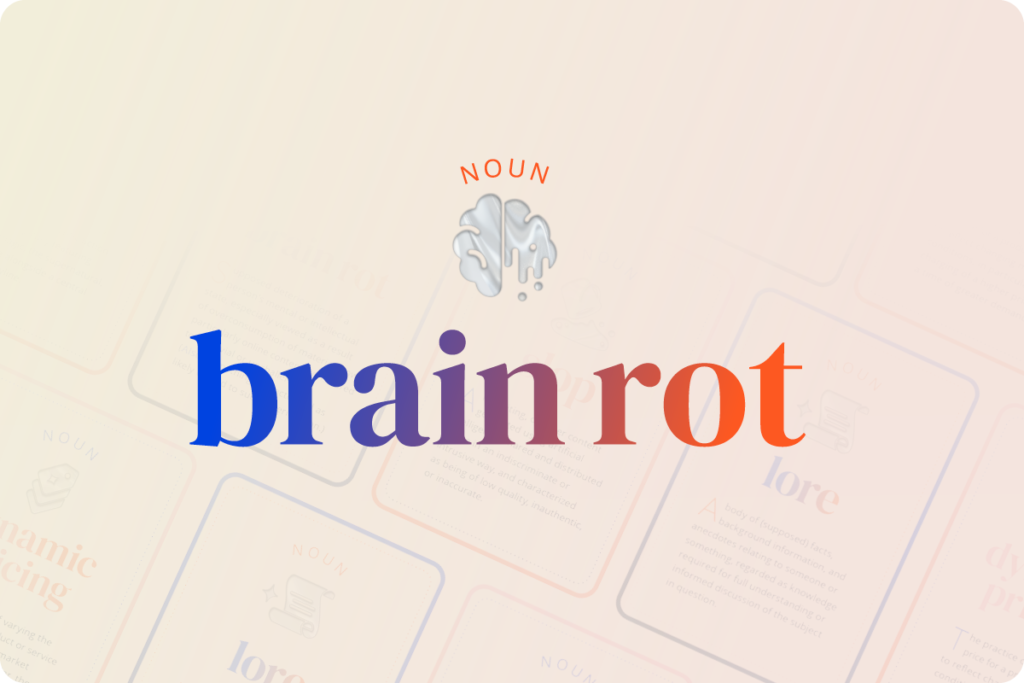The term “brain rot” has emerged as Oxford’s Word of the Year, reflecting growing concerns about the impact of mindless scrolling and excessive consumption of low-quality online content.
Its selection highlights a broader societal dialogue about our digital habits, particularly in an era dominated by social media and rapid information consumption. As usage of the term has surged by 230% from 2023 to 2024, it captures the zeitgeist of an anxious generation navigating a complex digital landscape.
The Meaning and Origin of Brain Rot
“Brain rot” describes the perceived deterioration of intellectual and mental capabilities due to excessive consumption of trivial or unchallenging content.
This phenomenon is often linked to endless scrolling through platforms like Instagram and TikTok, where users encounter an overwhelming stream of short, easily digestible videos. Psychologists argue that this habit can reduce attention spans and hinder deeper cognitive engagement.
Interestingly, the concept isn’t new. The first recorded use of “brain rot” dates back to 1854 in Henry David Thoreau’s Walden, where he lamented the decline in intellectual rigor within society.
Read : Demure Declared as Word of the Year by Dictionary.com
Thoreau’s question—whether efforts to cure physical ailments like potato rot would be matched by efforts to cure “brain-rot”—resonates even more today, emphasizing the persistent nature of these concerns.
Read : Timers Have Been Put on Toilets at a Tourist Spot in China
In the 21st century, the term has been repurposed by Gen Z and Gen Alpha to critique the modern digital environment, suggesting that the fundamental challenge remains unchanged.
The Modern Context and Social Media Influence
While “brain rot” is not a clinical diagnosis, its rise reflects widespread discontent with the quality of online experiences. The term encapsulates the frustration of feeling intellectually unfulfilled after hours of consuming low-value content.
Professor Andrew Przybylski from Oxford University points out that there’s no concrete evidence that brain rot causes cognitive decline. Instead, it symbolizes broader anxieties about social media’s influence on our lives.
Platforms like TikTok and Instagram have perfected algorithms designed to keep users engaged with bite-sized content. While entertaining, this content often lacks depth, promoting quick consumption over thoughtful reflection.

The popularity of the term “brain rot” suggests a growing awareness of these pitfalls, particularly among younger generations who spend significant time online. They recognize the need for a balance between entertainment and more enriching activities, sparking conversations about digital well-being.
Casper Grathwohl, President of Oxford Languages, noted that recent Words of the Year reflect society’s evolving relationship with the internet.
Last year’s selection, “rizz,” highlighted the playful and dynamic language emerging from online communities. In contrast, “brain rot” underscores the potential dangers of our virtual lives, emphasizing the need for mindful engagement with technology.
The Broader Impact on Language and Culture
The recognition of “brain rot” as the Word of the Year also reflects a broader cultural trend: the integration of internet slang into mainstream discourse.
Terms like “rizz,” “slop,” and “Romantasy” have all gained popularity, demonstrating how online subcultures influence language evolution. This trend underscores the internet’s role not just as a platform for communication but as a space where new linguistic and cultural norms are created.

Other shortlisted words for Oxford’s Word of the Year provide further insight into these trends. For example, “demure” gained traction through a viral TikTok trend, while “dynamic pricing” reflects economic concerns in a digital age. Each word captures a facet of contemporary life, highlighting the diverse ways in which technology shapes our experiences and language.
Looking back at previous Words of the Year, it’s clear that our digital lives have become a central focus. From “selfie” and “vax” to “rizz” and “brain rot,” these words tell a story about our evolving relationship with technology. They reveal both the opportunities and challenges of a connected world, prompting us to consider how we engage with digital content.
The selection of “brain rot” as Oxford’s Word of the Year is more than just a reflection of current slang. It represents a deeper conversation about the impact of social media and the importance of mindful consumption. As we navigate an increasingly digital world, terms like “brain rot” remind us to seek balance and prioritize meaningful engagement over mindless scrolling.

